Since 1 August, the internet portal for sustainable settlements and neighbourhoods has been offered under the domain www.siedlungen.eu and as a WordPress version with extended functions.
Keywords: Quarters, Settlements, sdg21 news
Since 1 August, the internet portal for sustainable settlements and neighbourhoods has been offered under the domain www.siedlungen.eu and as a WordPress version with extended functions.
From May to December 2018, the following sustainable settlements and neighbourhoods were the most accessed in the sdg21 web database:
| Settlement / Neighbourhood |
||
| 1. | 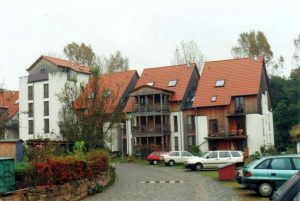 Bielefeld Forest Spring Bielefeld Forest Spring |
|
| 2. |  Ecostation Freiburg Ecostation Freiburg |
|
| 3. | E SA student dormitory Kaiserslautern SA student dormitory Kaiserslautern |
|
| 4. |  Hundertwasser House "Waldspirale Hundertwasser House "Waldspirale |
|
| 5. | 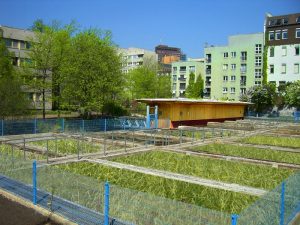 IBA Block 6 Berlin IBA Block 6 Berlin |
|
| 6. | Ö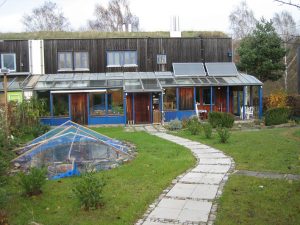 Frasenweg" housing estate Frasenweg" housing estate |
|
| 7. |  Signal box 60 Cologne-Nippes Signal box 60 Cologne-Nippes |
|
| 8. | A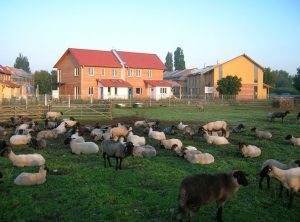 m round Berlin m round Berlin |
|
| 9. | 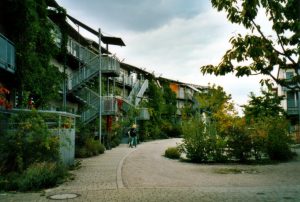 Ecological settlement Geroldsäcker Karlsruhe Ecological settlement Geroldsäcker Karlsruhe |
|
| 10. | 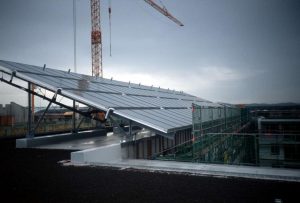 Solar City Wiggenhausen Friedrichshafen Solar City Wiggenhausen Friedrichshafen |
|
| 11. | Student dormitory as mound houses Stuttgart | |
| 12. | Building Biology Settlement Friebertshausen | |
| 13. | Sustainable model district Vauban | |
| 14. | Farmsen trotting course | |
| 15. | French Quarter Tübingen | |
| 16. | Hermannsdorf agricultural workshops Hanover-Kronsberg | |
| 17. | Cologne-Blumenberg eco-settlement | |
| 18. | S.U.S.I. Freiburg | |
| 19. | Eco-settlement Allermöhe Hamburg | |
| 20. | Beguinage Bremen |
Keywords:
sdg21 news
The Board of Directors of the European Investment Bank (EIB) today adopted a new energy lending policy and confirmed more ambitious targets for climate action and environmental sustainability.
"Climate is now high on the political agenda," said EIB President Werner Hoyer. "Science predicts that the temperature will rise by three to four degrees Celsius by the end of the 21st century if we do nothing to combat climate change. Large areas of the earth will then be uninhabitable - with devastating consequences for humanity. The EU Bank has been Europe's climate bank for many years. Today we have taken a big step forward. We will stop financing fossil fuel projects and pursue a climate strategy in the future that exceeds the ambitions of all other public financial institutions. I thank our shareholders, the EU countries, for their support over the past months. Now we will work closely with Member States, the EU Council of Ministers, the European Commission, the European Parliament, international institutions, financial institutions and, above all, the private sector to make Europe's economy climate neutral by 2050."
More commitment to clean energy
The EIB's new energy lending policy sets out five principles that will guide the Bank's future activities in the energy sector:
Andrew McDowell, EIB Vice-President with oversight of the energy sector: "In 2018, CO2-emissions from the global energy industry have reached a new record high. We need to act urgently to stop this trend. The new energy financing policy adopted by the EIB today is an important milestone in the fight against global warming. After a long debate, we were able to agree on a compromise: From the end of 2021, the EU bank will not finance fossil energy projects without CO2-reduction more. This also applies to gas. I would like to thank everyone who took part in the largest public consultation in the EIB's history over the past months. I would also like to thank the Bank's energy experts, who have shown how the EU's bank can drive the global effort towards zero-carbon energy."
Today's agreement brings to an end a review process in which industry, institutions, civil society and the general public have been able to engage. The Bank has received over 149 written submissions from organisations and individuals, as well as petitions with more than 30,000 signatures since January.
Over the past five years, the European Investment Bank has provided more than €65 billion for investments in renewable energy, energy efficiency and energy distribution.
In line with the revised energy sector lending policy approved by the Board of Directors today, from the end of 2021 the Bank will not provide new financing for fossil fuel projects without CO2-reduction. This also applies to gas. In addition, the Bank has set a new emission standard of 250 grams CO2 per kilowatt hour, replacing the previous standard of 550 grams. The EIB had already revised its financing policy in the energy sector in 2013 and adopted a stricter emissions standard. As a result, it was the first international financing institution to stop funding projects for coal and lignite-fired power generation.
For a fair energy transition
Ten EU countries face particular challenges in investing in the energy sector. They are to be supported from a fund for a fair transition. In doing so, the EIB will work closely with the European Commission. For new energy projects in these countries, the bank can finance up to 75 percent of the eligible costs. It also supports these projects with advisory services.
More ambitious targets for climate protection and environmental sustainability
The EU's bank has been Europe's climate bank for many years. Since 2012, the EIB has mobilised a total of €550 billion for projects that reduce greenhouse gas emissions and help countries adapt to the impacts of climate change. This makes the EIB one of the world's largest multilateral donors in this field.
The EIB's Board of Directors today approved a new strategy for climate action and environmental sustainability. The strategy focuses on three main areas:
Emma Navarro, EIB Vice-President overseeing climate action and the environment: "If we are to meet the Paris climate targets, it is essential that we raise our ambition. And that is exactly what we have done today. Two weeks before the UN Climate Change Conference in Madrid, we are sending an important signal to the world: the European Union and its bank - the EIB - will mobilise unprecedented amounts of money for climate change projects around the world. We are also doing everything we can to ensure that from the end of 2020 all our financing is in line with the goals and principles of the Paris Agreement. As agreed in Paris, any financing that is not yet green must become green."
EIB energy lending policy: Supporting the energy transformation
Source: EIB PM of 14 November 2019
Keywords:
Procurement, Renewable, Funding, Climate protection, Sustainable management, News Blog Europe (without DE), Environmental policy, Ecology, Economics
 Solarserver reports on the world's largest solar heating plant, which has been in operation in China since 2016. It consists of parabolic trough collectors.
Solarserver reports on the world's largest solar heating plant, which has been in operation in China since 2016. It consists of parabolic trough collectors.
On the roof of a XuChen factory hall next to the company headquarters, there are 22,000 m2 collector area, a further 71,000 m2 collector area are implemented as ground-mounted systems. Together they deliver an output of 65 MWth. With concentrating collectors, it would thus be the largest solar heating plant of its kind. An even larger one is the Danish Silkeborg plant (110 MWth)which, however, is equipped with a different collector technology.
By way of comparison, the largest German solar thermal plant supplying a housing estate, neighbourhood or district currently has just 14,800 m².
http://sdg21.eu/grosse-solarthermie-anlagen-auf-siedlungen
Link to the article on Solarserver:
www.solarserver.de/2020/10/02/solar-thermal-in-china-world's-largest-solar-heating-plant-with-parabolic-trough-collectors/
Keywords:
100% EEs, Renewable, Climate protection, Solar thermal
The page views were only recorded if "Do not track" was deactivated in the user's browser. This means that the actual access figures are likely to be significantly higher.
sdg21 page views Projects
.
Keywords:
sdg21 news